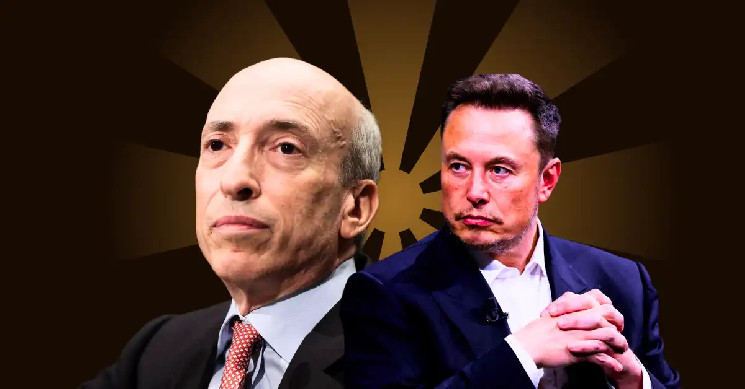The simmering tension between Elon Musk and the Securities and Exchange Commission (SEC) has reached a boiling point, with SEC Chair Gary Gensler issuing a 48-hour ultimatum to the billionaire entrepreneur. This demand, veiled in ambiguity regarding the specific charges and the number of Musk’s companies implicated, requires payment from Musk to avoid impending legal action. While the details remain shrouded in secrecy, the aggressive timeline and the involvement of Musk’s attorney, Alex Spiro, who was recently subpoenaed by the SEC, suggest a serious escalation in the ongoing regulatory scrutiny of Musk’s business dealings. This latest development marks yet another chapter in the protracted conflict between the maverick entrepreneur and the regulatory body, raising questions about the SEC’s approach and its potential implications for the broader business landscape.
The SEC’s investigation primarily stems from Musk’s delayed disclosure of his substantial 9.2% stake in Twitter, acquired in March 2022. Federal law, specifically the Hart-Scott-Rodino Act, mandates disclosure within ten days of acquiring 5% or more of a publicly traded company. Musk’s disclosure, filed on April 4, 2022, came approximately ten days after crossing this threshold, prompting the SEC to launch an inquiry into the potential violation. This delay, according to the SEC, potentially allowed Musk to accumulate more shares at a lower price before the disclosure inevitably inflated the stock’s value, raising concerns about potential market manipulation and unfair advantage. The SEC’s pursuit of this matter underscores its commitment to enforcing disclosure requirements and ensuring market transparency.
The SEC’s aggressive tactics, exemplified by the short ultimatum and the prior subpoena of Musk’s lawyer, Alex Spiro, have drawn criticism and raised concerns about potential overreach. Spiro has publicly accused the SEC of harassment and politically motivated actions, framing the regulatory pursuit as an undue burden on Musk and his companies. This contention adds another layer of complexity to the already tense situation, portraying the SEC’s actions as potentially driven by extraneous factors rather than purely regulatory concerns. This narrative of regulatory overreach and potential bias has resonated with some commentators and observers, further fueling the debate about the SEC’s approach and its implications for the business community.
Prominent figures within the legal and cryptocurrency communities have voiced their opinions on the SEC’s handling of the Musk situation, drawing parallels to other high-profile cases and highlighting perceived inconsistencies in the regulatory body’s approach. John Deaton, a lawyer known for his pro-XRP stance, criticized the SEC’s aggressive tactics, contrasting the treatment of Musk, the world’s richest man, with the perceived harsher treatment of smaller businesses and entrepreneurs who lack comparable resources to mount a robust defense. Deaton cited the SEC’s actions against LBRY, a blockchain-based content platform, as an example of excessive regulatory zeal, alleging that the SEC sought to bankrupt the company before even filing a lawsuit.
Deaton’s criticism extends to the SEC’s handling of the Ripple Labs case, arguing that the regulatory body pursued a costly and protracted legal battle against Ripple and its CEO, Brad Garlinghouse, over a registration issue rather than actual fraud. He highlighted the substantial legal fees incurred by Ripple, exceeding $150 million, to underscore the financial burden imposed by such regulatory actions, particularly for companies lacking the deep pockets of a tech giant. This comparison serves to illustrate Deaton’s broader point about the potential disparity in the SEC’s approach, suggesting a tendency towards more aggressive tactics against smaller players in the market.
The SEC’s pursuit of Elon Musk, while focused on specific disclosure requirements, raises broader questions about the regulatory landscape and the agency’s approach to enforcement. The aggressive tactics employed, the perceived disparity in treatment between large corporations and smaller entities, and the potential for politically motivated actions all contribute to a complex narrative that extends beyond the immediate details of the Musk case. This ongoing saga highlights the challenges faced by both businesses and regulators in navigating the evolving landscape of financial regulations, and the need for transparency and consistency in the application of these rules. The outcome of the Musk case could have far-reaching implications for the future of SEC enforcement and the relationship between regulators and the business community.


